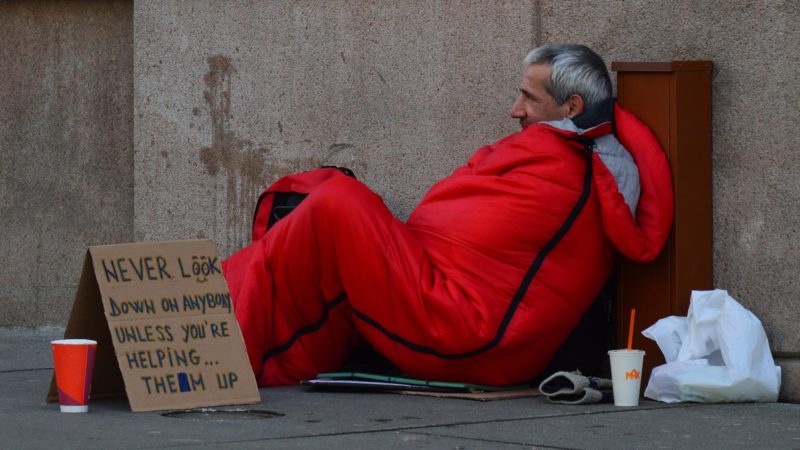
The next Labour government will inherit a national homelessness crisis, and delegates at annual conference will tomorrow determine how it responds. The homelessness motion being proposed would not only show our party’s real ambition to reverse Tory austerity, but it would also mark a fundamental shift in how governments and local authorities deal with homelessness – a shift away from criminalisation and towards basic compassion.
The motion being proposed would commit Labour to ending all forms of criminalisation of homelessness. This is radical because our party needs to do better. Sadly we’ve seen Labour councils implementing policies that treat behaviours associated with homelessness as a criminal offence.
The Vagrancy Act 1824 was passed during a period of intense land privatisation to criminalise homeless people including destitute ex-soldiers and migrants. It makes it a criminal offence to sleep “in any deserted or unoccupied building, or in the open air, or under a tent, or in any cart or waggon, not having any visible means of subsistence”. Although now entirely repealed in Scotland, the Act remains on the statute book in England and Wales as a catch-all piece of legislation still used to prosecute people for begging and rough sleeping.
As well as repealing the archaic Vagrancy Act, the motion being debated on the conference floor tomorrow opposes the use of various ‘anti-social behaviour’ measures used to control, punish and fine people experiencing homelessness.
Under the broadly drafted Anti-Social Behaviour, Crime and Policing Act 2014, councils can make what are termed ‘Public Space Protection Orders’ (PSPOs) to ban activities they deem to have a detrimental effect on others. PSPOs carry on-the-spot fines of £100, with a fine of up to £1,000 and potential prosecution for non-compliance. In some cases, Labour councils are utilising the powers granted under this Tory legislation to enact PSPOs which criminalise activities like ‘aggressive begging’ (broadly defined to include, for example, begging near a cashpoint) and rough sleeping.
Other measures like Criminal Behaviour Orders and Community Protection Notices function similarly to criminalise people living in public spaces. This motion makes clear that, as Labour Party members, we expect and demand that our representatives oppose the use of these counterproductive laws.
These policies, of course, cannot be viewed in isolation. Any measures to uphold the rights of people experiencing homelessness must be underpinned by transformative housing policies, a humane immigration system, adequate funding for local government, and a social security system that provides a genuine safety net for all. The immigration motion also to be debated on Tuesday, for example, commits Labour in its manifesto to abolishing ‘no recourse to public funds’ status which excludes many migrants from mainstream homelessness services and drives people onto the streets.
Instead of criminalising some of the most marginalised people in society, we should be expanding our solidarity and compassion. Instead of implementing Tory measures that punish people struggling to survive without a home, we should be resisting them. If we do, our party’s ambition to end rough sleeping within its first term in office is entirely achievable.




More from LabourList
Labour place third in Gorton and Denton by-election as Greens gain seat
‘What Batley and Spen taught me about standing up to divisive politics’
‘Security in the 21st century means more than just defence’